Skill building of Rohingya and host community adolescents and youth: Opportunities and challenges
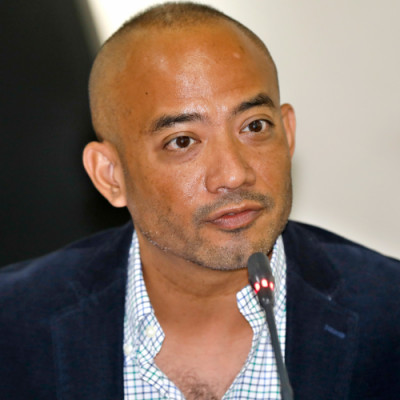
Dr Ashish Bajracharya, Deputy Director for Country Strategy, International Programs Division, Population Council
Because the Population Council is a relatively new organisation working in humanitarian settings and in Cox's Bazar, I would like to take the opportunity to introduce the Council. Population Council is an international non-governmental research organisation that is headquartered in New York. We have offices in 12 countries in Africa, Asia and Latin America and conduct research in nearly 50 countries around the world. We primarily work on various health and development issues including reproductive health, family planning, poverty, gender and youth, HIV/AIDS, climate change, population dynamics, among others. We have done a significant amount of work in humanitarian settings over the last decade on these very issues, but we are not necessarily known for our work in this sector. We have recently made a commitment to improve our footprint in the humanitarian world so that we can utilise our experiences and skills in learning, knowledge generation and evidence-based decision-making to address issues in humanitarian settings. We have formed a Humanitarian Task Force, which is tasked with exploring how we can be most impactful in our engagements in humanitarian settings globally. We currently work on issues related to sexual and reproductive health, gender-based violence and adolescents and youth in humanitarian settings including in the East and Horn of Africa, Kenya, Nigeria, and our study in Cox's Bazar is a key example of our commitment to contribute to research and learning in humanitarian settings.
This is a unique event. Representatives of all the relevant stakeholders such as government and non-government organisations, the UN and the media are in attendance in today's programme. We look forward to learning from their experiences and perspectives and exploring effective solutions to the issues that will be discussed today.

Piet Vochten, Deputy Country Director, WFP
A large proportion of Rohingya community are young and adolescents. They are the future of their society. By equipping them with the right skills, we can help them build their future. This effort should go hand in hand with the political process so that they can return to their homeland. We have to ensure that the skills that we equip them with prove to be useful when they go back to their home country or any other destination. These skills should lead to some kind of income-generating activity. This is also true for Bangladeshi young people since they are also vulnerable to the threats of climate change.
The challenges we are trying to address are multiple, and our resources are limited. Therefore, we need to work together and combine our resources and experiences to find creative solutions both for the displaced Rohingya people and Bangladeshi population.
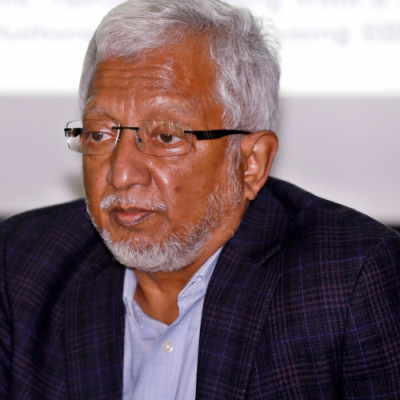
Dr Ubaidur Rob, Country Director, Population Council
Population Council conducted a study among the young Rohingyas, officially known as 'Forcibly Displaced Myanmar Nationals', aged between 15 and 29 years living in the camps, to find out the economic opportunities available to them as well as their aspirations. The study report is available on Council website.
If we look at the marital status of these young people, we will see that approximately 63 percent of young Rohingya women are married while for young Rohingya men the figure stands at 54 percent. A huge number of young Rohingyas have attended school (male 62 percent, female 43 percent). But among the young Rohingya population, 54 percent males and 72 percent females did not finish primary schooling. These young people have already passed the age by which they should have completed a minimum level of education. They only have the scope of going for technical education.
Only a few (6 percent of male and 9 percent of female) of these young people received some sort of training in Myanmar. The situation has remained almost the same since they took shelter in Bangladesh. Five percent of male and nine percent of young female Rohingyas have received training in Bangladesh. In Bangladesh, young male Rohingyas received training mainly on mechanics, computer, paramedicine, the English language and masonry while young female Rohingyas received training on tailoring, block/boutique, the English language, financial literacy and paramedicine.
When we asked young Rohingyas why they didn't take any training in Bangladesh, most of them informed us that they were not aware of any training programme inside the camp. There are also other reasons. For example, nobody advised them, social or family barriers (particularly faced by young women), no opportunity inside the camp and fewer job opportunities.
However, we found that young Rohingyas are interested in receiving skills training. Most of the young Rohingya men are interested in computer operation and mechanics while 95 percent of young Rohingya women are interested in training on tailoring, embroidery, and dressmaking.
Inside the camp, 64 percent of the young Rohingya men are involved in various income-generating activities while the percentage for young Rohingya women is only 6 percent. Only 23 percent of young Rohingya men are involved in economic activities outside the camp. Based on the above facts and figures, we want to highlight four issues:
i) Young Rohingyas are interested in receiving technical and vocational training;
ii) They intend to be involved in income generating activities or start small businesses;
iii) Work opportunities are limited and sporadic; and
iv) They don't have access to capital and credit/microfinance.
To address these issues, we can provide them with technical and entrepreneurial skills. In addition, cash assistance may be provided to start small businesses. The market networks also need to be strengthened so that they can sell their products outside the camp. Finally, we can engage them in jobs provided by various NGOs.
Besides conducting the household survey, Population Council also reviewed the legal context of refugees in five host countries, i.e., Uganda, Ethiopia, Kenya, Jordan and Malaysia. The review shows that the local integration of refugees starts with a legal process, whereby refugees are granted a progressively wider range of rights and entitlements. Refugees can be considered "integrated" with host economies when they have access to work permits and business opportunities and are able to secure livelihoods and become less reliant on humanitarian assistance. The legal scope for refugees to work varies significantly across host countries. Work opportunities for refugees are subject to the political will, national policies and initiatives of host countries. Bangladesh can review the experiences of these five countries to formulate future policies and strategies to deal Rohingya crisis.

Md Abdul Karim, Executive Director, UCEP (Former Principal Secretary, People's Republic of Bangladesh)
Education is equally important for the Rohingyas and the host community in Cox's Bazar. UCEP has been providing technical education and vocational training to underprivileged young adults for the last 49 years. We offer four-year diploma courses and short trade courses, which is what the Rohingya people and the host community need right now. This type of education will come in handy for the Rohingyas when they return to Myanmar, as the training will enable them to secure jobs immediately. The host community is also suffering from a lack of skills and skills development training from UCEP can help improve their future.
UCEP has been working in Bangladesh since 1972 with the goal to ensure quality, skilled education for the youth. Girls, persons with disabilities and marginalised groups are being specifically targeted by UCEP. We offer more than 40 different trade courses in eight sectors. Annually, UCEP reaches around 35,000 students and youth. Of them, 20,000 enter the job market annually.
A key component of our success has been the strength of our partnerships. We have successfully worked with many government and non-government organisations. Our main focus should be the young adults in both the host and Rohingya community. We should provide them with life skills training along with other specific types of training that are in demand in the district. Here, partnerships with industries are necessary to make accessible to them decent work opportunities once they are trained.
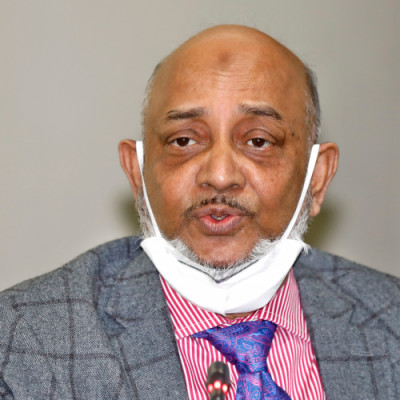
DR Ahmed Al Kabir, Founder and Chief Advisor, RTMI
During the Liberation War, my entire family was displaced. I can somewhat understand the feelings of the Rohingya people. RTMI has been working for the Rohingya community since the beginning of 2007. We have developed many skills-related activities in Cox's Bazar, but on an ad-hoc basis depending on the immediate needs of the community. We are continually providing health-related services to both Rohingyas and neighbouring communities. Rohingya youth are the future of the entire community. If they remain unskilled, the community will suffer in future. Rohingya youth are the future of the entire community. If they remain unskilled, the community will suffer in future.
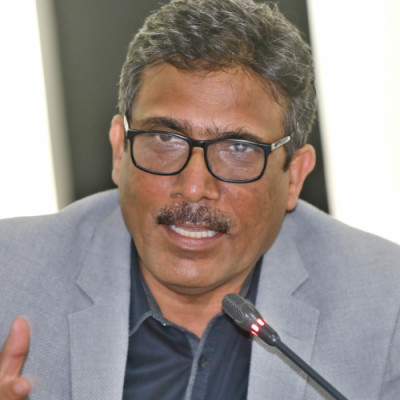
Dr Noor Mohammad, Executive Director, Population Services and Training Centre
Due to the trials and tribulations the Rohingya community has faced, the government of Bangladesh provided them with the highest level of support that was possible. However, the host community was neglected in a way. That is why the Bangladesh government has now announced that they will be taking similar interventions to support the host community going forward.
Proper identification of the Rohingya population is very important. We should also consider introducing a movement pass which will allow them to move between the different areas for work. Many of them have made their way out of the camps into the Bangladeshi community to find jobs, which is already creating issues within the host community. While designing skills building training, we must think about what the Rohingyas will do after receiving this training. Maybe we can allow 40 percent of trained Rohingyas to work in the host community while the other 60 percent can work exclusively in their own community.

Abu Morshed Chowdhury, President, Cox's Bazar Chamber of Commerce
We have to keep previous Rohingya crises in mind and any intervention we take should be aligned with our national interest. We have to ensure peaceful coexistence between the Rohingya and the host community. We don't know when repatriation will take place. So far, there are no formal market linkages between the Rohingya and the host community. I would like to request the Bangladesh government and WFP to take initiatives to build value chains focusing on the camps so that the host community can overcome their frustrations by supplying necessary goods to the camps until the repatriation of the Rohingyas. It will also ensure social cohesion between the Rohingya and the host community.
There should be a one-stop service centre to reduce unnecessary expenses. We must also clarify which types of skills training will be provided to the host community and which ones will be provided to the Rohingya community.

Didarul Alam Chowdhury, Director, UCEP
The Rohingya community and the host community must be provided with 21st-century skills. Although they are now stateless but they are global citizen and entitled for human rights. In other words, there should be a focus on soft skills such as self-management, critical thinking, problem-solving, collaboration, and eventually global citizenship and education. Our national framework also encourages this. We should follow other countries that have adopted 21st-century skills in their humanitarian assistant programmes.
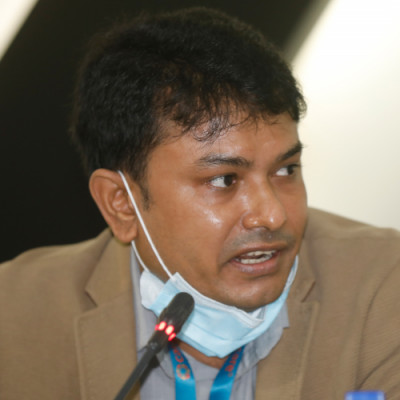
Md Shahab Uddin,
Knowledge Management and Learning Coordinator, CARE Bangladesh
The Bangladesh government has been supporting the vulnerable Rohingya population generously since the very beginning. However, getting government approval for funds to run skills building training programmes inside the camps has been a challenge. We request the government to make this process easier so that Rohingya people can get minimum technical skills during their interim period in Bangladesh.
The importance of providing skills training is universally recognised. Proper skills can have the most transformative effect on youth and adolescents. If we can't harness their potential, they will be exploited for destructive purposes. We must keep them engaged in productive work. Leaving them in a vacuum will not only put them in danger but also create challenges for Bangladesh.
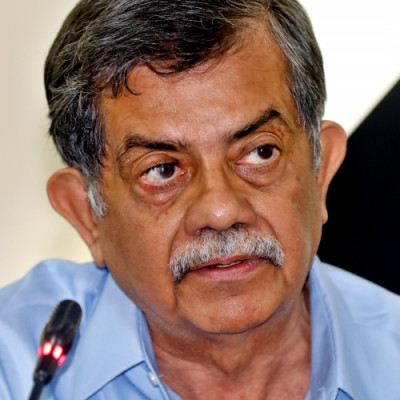
Dr Chowdhury Rafiqul Abrar, Executive Director, RMMRU and Professor, University of Dhaka
One of the fundamental points is that repatriation of the Rohingya to Myanmar is not likely in the foreseeable future. We cannot be solely reliant on the international community to support the Rohingya crisis, as donor fatigue will eventually set in since there are many other crises going on in the world right now. Therefore, in our own national interest, we should establish policies and measures to ensure that the Rohingya youth are provided with skills training for a better future.
For a population that has gone through so much trauma, who have witnessed death and rape, the best possible antidote to recover from this trauma and to make their lives meaningful is to provide them with education and skills. Unfortunately, there have been a lot of delays in terms of policy framing, and that is why such discussions are so important.
In this discussion, we have primarily talked about the Rohingyas living in camps, but we should also remember those Rohingyas who are living outside of these camps. Their number is somewhere around two to three lakh and that is why we should not forget about them when designing programmes.
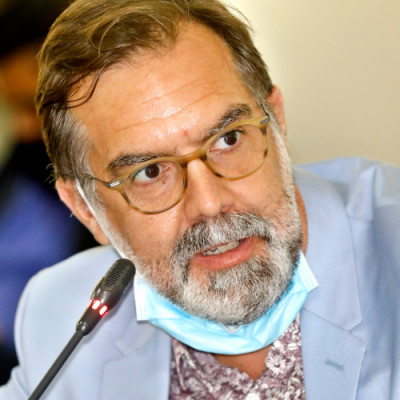
Romain Desclous, Senior External Relations Officer, UNHCR
The skills that the youth will have to develop should have demand in the market. These skills also need to be portable so that they can make use of those skills upon their return to Myanmar.
Our primary goal should be to provide them skills which will allow them to have a productive life with a job and an income. These skills will make them hopeful for a future in their home country, and will prevent them from sitting idly and becoming vulnerable to activities that may prevent their reintegration into Myanmar's society.
Since Cox's Bazar is a tourist-centric area, skills training should be strategically designed to cater to the specific needs of the area, while keeping in mind that for the Rohingya community, these skills should also be useful when they return to Myanmar.

Md Ashrafur Rahman,
Programme Analyst, UNFPA
We should focus on providing the Rohingya youth with skills training which will be useful upon their return to Myanmar. To ensure the training programmes meet this requirement, we should analyse the current market in Myanmar to determine the types of skills which are in demand there.
I would also like to emphasise that alongside traditional skills development, we should provide the Rohingya youth with digital literacy training.

Dr Bulbul Siddiqi, Professor & Director of Confucius Institute, North South University
There is growing sense of dissatisfaction and declining sympathy amongst the host community towards the Rohingya community since the influx of Rohingya in 2017. To address this issue, we must increase interactions between the host community and the Rohingya community. Otherwise, there cannot be any form of social cohesion between the two communities. Develop formal market linkages between these two communities could be found very effective to build social cohesion.

Tuomo Poutiainen, Country Director, ILO, Bangladesh
Skills building is a way for Bangladesh to provide support to the Rohingya community for sustainable return. We should focus on portability, coherence, direction, quality, and efficiency when designing skills training programmes. This is where the link to the Myanmar labour market and the Rakhine state will be crucial. ILO and other organisations have analysed the labour market in Myanmar over the years and have even established programmes on employment there. So, we do have some knowledge about the kinds of skills that could be provided to the Rohingya youth. We also believe that having these kinds of skills and education programmes in place supports stability and peace within the camps.
When designing these programmes, we must also recognise the target groups in terms of gender and other factors so that the reality of the camps is taken into account.
It is important to continue to focus on the local economic development, not only in the vicinity of the camps but in the entire district. This requires dedicated efforts to match skills with the expectations of the private sector. That is why collaboration with district authorities and the private sector to build skills programmes is necessary. Like-minded development partners who are here today should come together to support a holistic approach to local economic development in Cox's Bazar and the greater division.
In all these activities, it is important to have the support of national actors such as the local government institutions and organisations like BRAC, UCEP and others who have a wealth of experience and have been working in this field for a long time. Fostering alliances and partnerships is essential to create a new framework for the broader host community.
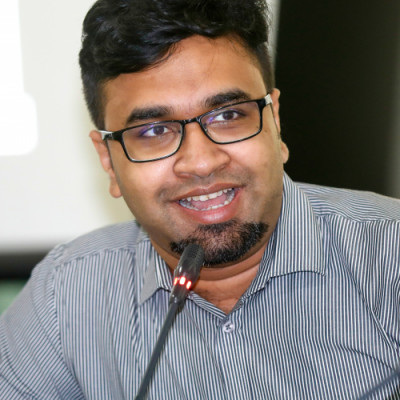
Shuvashish Roy, Head of Business, The Daily Star
There are pressing needs for Rohingyas such as food and shelter, but apart from that, it is very important to have sustainable solutions such as the proposed skills development training programmes. The Daily Star, being a national newspaper of repute, will highlight the importance of providing skills to the young Rohingya population as a sustainable solution to the Rohingya crisis. We will also disseminate the recommendations from today's discussion regarding the skill development programmes to a wider audience, including policymakers.
Recommendations
- Technical and entrepreneurial skills training need to be provided to adolescent and young Rohingya population. It will not only help them to gain community resilience, but also have long-term impact on livelihood opportunities after their repatriation to Myanmar.
- Skills training also needs to be provided to adolescent and young members of the host community in Cox's Bazar to improve the socio-economic condition of the region.
- Collaboration between national and international organisations is necessary so that their collective experience can be used to develop effective skills training programmes for both the Rohingya and the host community.
- Innovative models for cash assistance could be developed to help Rohingya youth to start small businesses.
- Market networks need to be strengthened between host community and Rohingya so that Rohingya population can sell their physical labour and products outside the camps.
- Create job opportunities for young Rohingyas in various programs implemented by different NGOs inside the camps.
- Besides providing support to the Rohingya and the host community in Cox's Bazar, comprehensive plan needs to be developed to improve the economic condition of the area.


 For all latest news, follow The Daily Star's Google News channel.
For all latest news, follow The Daily Star's Google News channel. 


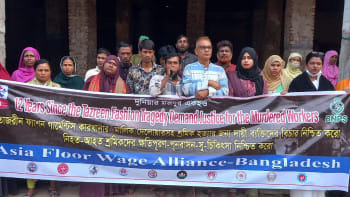
Comments